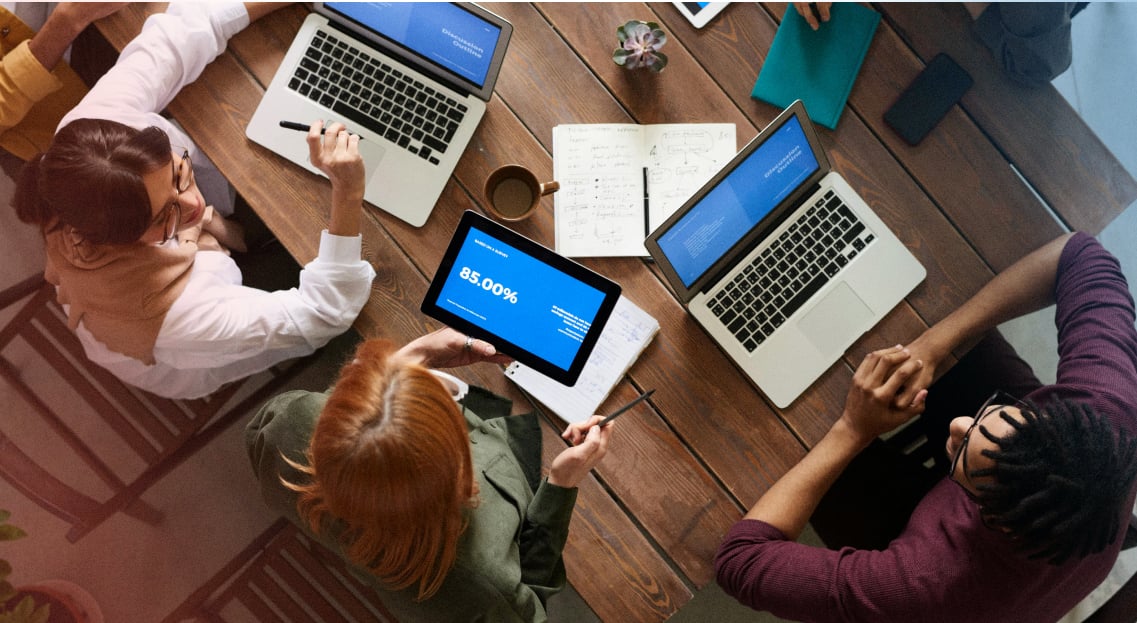The world is facing an unprecedented challenge in how it responds to the COVID-19 pandemic. We would like to offer a practical approach for institutions, lecturers and students (learners) to keep learning while we manage this crisis – together.
First, some truisms:
- – Technology is NOT the only solution – empathy is!
- – Getting your content online is not your priority – maintaining a connection with your students is.
- – Providing a clear, contained and focused response is more helpful than offering numerous different options, solutions and resources.
IF YOU ARE AN INSTITUTION (BASIC OR HIGHER EDUCATION), CONSIDER THE FOLLOWING:
- – Acknowledge to your staff and students that you are all facing the crisis together and that their health and safety remain your number one concern. Follow this up with tangible resources and support.
- – Allowing your staff to work remotely and deliver their lectures/classes online will contribute to providing ongoing teaching and learning.
- – Together with your staff, select a ‘single set’ of technology solutions that are simple to use and effective in delivering online education. Having one set of solutions will aid lecturers/teachers in assisting each other more effectively, and reduce the burden on your IT infrastructure.
- – If you do not have an LMS in place (most universities and schools do), we would recommend an open-source solution such as Moodle. Include webinar functionality such as Zoom or Skype.
- – Ensure that students (learners) have access to information from a ‘single’ source of truth – keep the communication clear, concise and to the point. Most importantly, keep it consistent.
- – Provide data to your students – this seems obvious, but without data, this plan of action will NOT work.
- – Set up a ‘live’ timetable online using Google Calendar or a similar service.
IF YOU ARE A LECTURER, CONSIDER THE FOLLOWING:
- – Create a schedule for regular check-ins via Skype/Zoom or LMS forum posts (more about this later).
- – Break down your module content into manageable ‘bite-sized’ chunks of information.
- – Provide pre-readings, module notes and assignment due dates as the course progresses. Avoid overwhelming your students with ‘extra’ information or unnecessary tasks. The situation is overwhelming as it is.
- – Webinars are a great way to stay connected. They can also be recorded and made available after a session.
[inline_course_ad]
When conducting webinars, think about the following:
- – Invest in a decent web camera – this way, the eye contact you make with students is improved (as is the audio).
- – Avoid a strong backlight (e.g. a window) behind you. This tends to create a silhouette and make the overall picture dull and gloomy.
- – Avoid a distracting background.
- – Do not check your emails or texts or take calls while conducting webinars – you would not do any of these things if you were teaching in person!
- – Remind your students before the webinar begins that it is being recorded.
- – Structure questions before the webinar.
- – Set up study groups with deadline-driven tasks and activities. This will help keep your students focused.
- – Encourage peer-to-peer learning using forum discussion boards on your LMS or other social media communication tools such as WhatsApp.
- – Self-care for yourself and your students is important. Take regular breaks, and balance the work with healthy habits like exercise and eating correctly. Be kind to yourself and the people around you.
IF YOU ARE A STUDENT (LEARNER), CONSIDER THE FOLLOWING:
- – Keep yourself informed – use trusted and credible sources for tracking this situation.
- – Stay connected with your fellow students, lecturers and the institution you are registered with using the online tools provided (this includes participating in forum discussions, chats and webinars).
- – Take the formative tests/quizzes to measure your own level of understanding and assist your lecturer in knowing what to focus on.
- – Hand your assignments in on time – this will help ensure you receive timeous feedback.
- – Support your fellow students – we are all in this together. Stay positive while remaining realistic and aware.
We can get through this! Let’s keep learning and sharing what is useful and helpful. We will be adding more information as the weeks and days go by. We would like to hear from you, too, so please do share your thoughts and ideas.
Yours in learning,
Paul Lensen (CDO) & Alex Smith (Head of Product Development)


